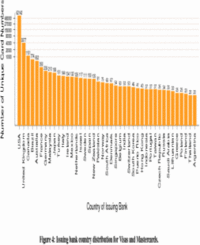 Bruce, seeing that the Storm Worm has sprouted stock tout popups on its own bots:
Bruce, seeing that the Storm Worm has sprouted stock tout popups on its own bots:
(((I’m guessing the next step is to contact Storm bot victims directly and ask them to join the Storm Network voluntarily. AFter all, if you obeyed that Storm spam pop-up, you cashed in; and this would be a valuable opportunity to become a foot-soldier in the biggest online organized=crime outfit ever.)))Having proved that it can infect much of the Internet and the alleged security professionals can do nothing about it, Storm now bids to get its victims to join it?— Storm Worm spams its own bots, By Bruce Sterling, Beyond the Beyond, November 15, 2007 | 11:34:00 AM
-jsq

 Why Internet security professionals are losing:
Why Internet security professionals are losing:
